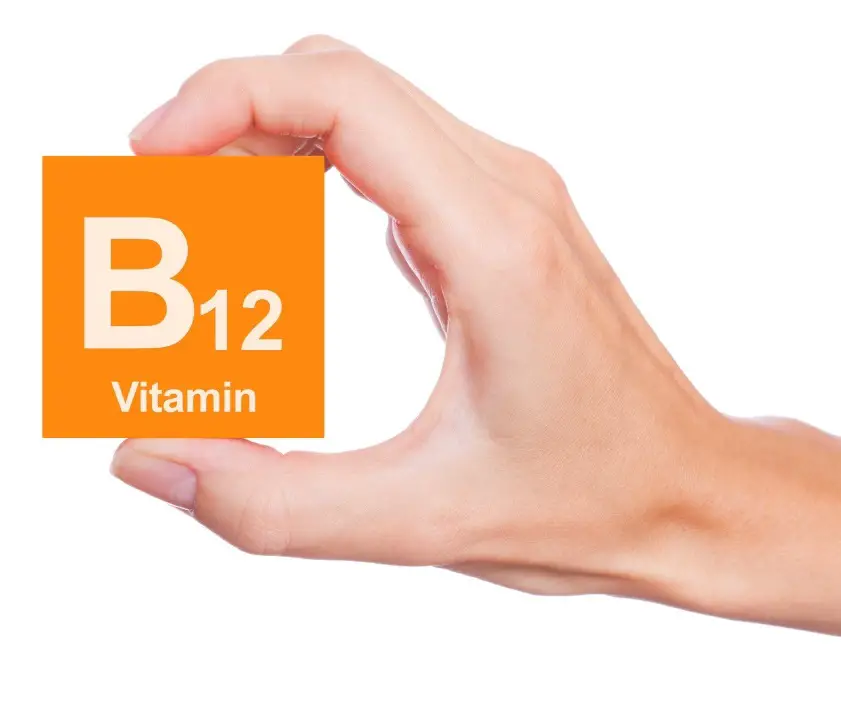Guest Writer for Wake Up World
Vitamin B12 (cobalamin) is a vital nutrient for many functions in the body, yet sadly much of the population is deficient. Additionally, most are unaware that a deficiency of vitamin B12 can lead to a list of symptoms which may not be immediately recognised as symptoms associated with a deficiency in B12 – and they can creep up on you! (About 50 percent of patients with subclinical disease have a B12 deficiency.)
So if you are feeling less than healthy, then it is very possible some of your symptoms may be the result of a chronic or even an acute deficiency in this crucial nutrient. So, let’s start with what foods contain Vitamin B12 and why it is so important to health and vitality.
Vitamin B12 – Why is it important?
[pro_ad_display_adzone id=”110028″]
Vitamin B12 plays a crucial role in the body. It is responsible for making healthy blood cells, and our nerves cannot work efficiently without adequate amounts of its presence. It is the building block the body uses for DNA formation and repair, it keeps our immune system in check, regulates our mood and sleep cycles, helps to manage stress in the body, and supports proper neurological function.
Brain function
As we age our brain actually shrinks and cognitive function begins to decline. Vitamin B12 supplementation has been shown to slow this process and help with memory loss.
Studies have shown that 1 in 2 seniors show a decreased levels of Vitamin B 12, because as we age we are less able to absorb this vitamin due to the decline in a glyco-protein produced in our stomach called intrinsic factor. Studies are also showing that younger adults too can be low in B12, especially those with compromised digestive disorders and those who follow a vegetarian or vegan diet.
A condition known as pernicious anemia – thankfully fairly rare – can also be caused by chronically low levels of vitamin B12, and this condition can lead to dementia. Pernicious anemia is a serious condition, and the first symptoms are often confusion – slowness – irritability, and apathy.
Natural sources of Vitamin B12
B12 is a unique vitamin in that natural sources are only found in animal foods (see further information below), however some pre-packaged foods are fortified with a synthetic form of B12. Depending on your diet and your age, it is quite possible you are not up-taking enough of this most important B vitamin.
Some plant foods may contain some B12, but studies have showed that the human body is actually unable to use the plant-based form of vitamin B12, meaning that vegetarians and vegans are at high risk of developing a deficiency in this vitamin despite that they may be including in their diet plant foods believed to contain B12. The B12 we can biologically use is produced by bacteria only in the gut of animals so, unlike other vitamins, we can’t obtain it from plants or from sunlight.
The best dietary sources of vitamin B12 include red meat, poultry, fish, eggs, shellfish, milk and most other dairy products. However, even those who eat abundant amounts of these foods can sometimes be deficient because due to some health conditions, and as we age, in addition to diminishing levels of intrinsic factor (as mentioned) above, our stomach lining also loses its ability to produce adequate amounts of hydrochloric acid, which is needed to breakdown and absorb B12 from our food. Some people who have digestive issues or take acid blocking medications are at higher risk as they are unable to absorb this key vitamin.
Symptoms of Vitamin B12 deficiency include:
- Low energy or weakness
- Confusion
- Sleep issues
- Digestive issues
- Poor circulation
- Hearing or vision loss
- Memory problems
- Dizziness
- Brain fog
- Unusual mood swings/anger/psychosis
- Tingling in extremities
- Low immunity
- Easy bruising or bleeding gums
- Weight loss
More serious symptoms of B12 deficiency can include:
- Yellowish skin
- Fatigue
- Shortness of breath
- Headaches
- Numbness or tingling in the hands and feet
- Trouble keeping balance
- Psychosis
Who is most at risk?
It is important to have your B12 levels checked especially if you are:
- Vegetarian or vegan
- Suffering from intestinal disorders like Crohn’s or Celiac Disease or Chronic Candida infection
- A heavy alcohol drinker
- A long time user of acid-reducing drugs
- Dealing with autoimmune conditions
… Or if you suffer any of the symptoms mentioned in the list above.
Supplementing
If your levels are found to be low, you will either be advised you need to have B12 injections, or you will need to take a B12 supplement. The safest and best absorbing Vitamin B12 is methylcobalamin and it should be taken sublingually (absorbed through the mouth), which ensures it gets into your blood stream directly, rather than passing through your intestinal tract which may be compromised.
Check with your pharmacist or someone competent at your health shop who can advise you about a high quality B12 supplement. It is important to note that many B12 supplements are made from cyanocobalamin which is obtained from cyanide and can be harmful to the body over time.
Further references:
- Preventing vitamin B12 deficiency among vegetarians, vegans and the elderly – Journal of Agricultural and Food Chemistry
- Vitamin B12 Deficiency – American Family Physician
- The Vitamin B12 Connection – Women’s International
Previous articles by Shirley Plant:
- Simple Tips For Mindful Eating
- Recipes: Chocolate Cherry Cupcakes & Healthy Heart Cookies! (Gluten, Dairy & Sugar Free)
About the author:
 Shirley Plant is a Nutritionist, Dietary Consultant and Cookbook author who has studied in the field of nutrition for many years. Diagnosed with chronic fatigue syndrome, fibromyalgia and multiple food and environmental allergies, Shirley understands firsthand the difficulties of trying to plan creative, nutritious, and affordable menus while having to avoid such common foods as wheat, dairy, eggs, corn, gluten and sugar, just to name a few. But through understanding, education, and a keen interest to help people find food alternatives to fit into their life schedules, Shirley has developed an expertise and reputation in dietary design, customized recipes and menu-planning.
Shirley Plant is a Nutritionist, Dietary Consultant and Cookbook author who has studied in the field of nutrition for many years. Diagnosed with chronic fatigue syndrome, fibromyalgia and multiple food and environmental allergies, Shirley understands firsthand the difficulties of trying to plan creative, nutritious, and affordable menus while having to avoid such common foods as wheat, dairy, eggs, corn, gluten and sugar, just to name a few. But through understanding, education, and a keen interest to help people find food alternatives to fit into their life schedules, Shirley has developed an expertise and reputation in dietary design, customized recipes and menu-planning.
Shirley is the author of Finally… Food I Can Eat, an inspirational dietary guide and cookbook for people affected by food allergies and intolerances. She is recognized as a menu-planning expert through her company Delicious Alternatives and has written articles for numerous health and lifestyle magazines. She has also been a presenter at the Ottawa Environmental Health Clinic on food allergies, intolerances and rotation diets, has given seminars on food allergies, cooking and menu planning at Health Clinics and Natural Health Food Stores, and offers online seminars to help people to improve their diets, the healthy way.
For more information please visit DeliciousAlternatives.com or email [email protected]
[pro_ad_display_adzone id=”110027″]







